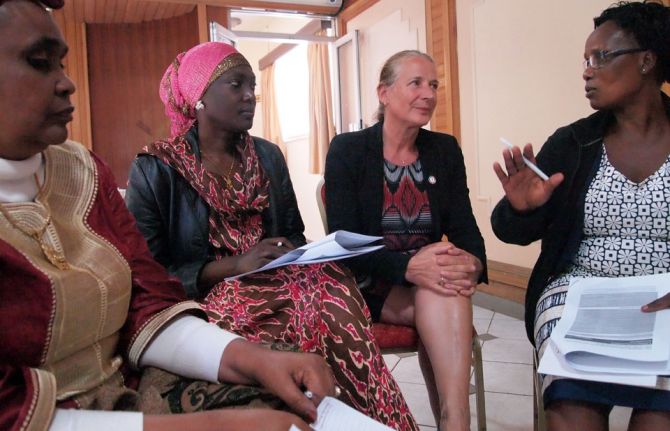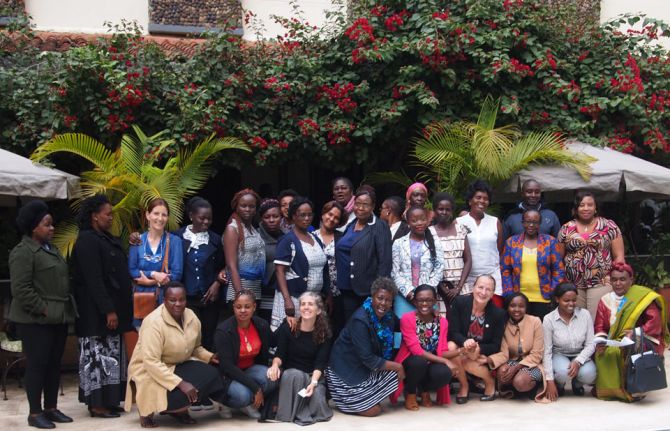



Feature Story
Advocating for zero discrimination in health-care settings in Kenya
08 May 2018
08 May 2018 08 May 2018Like many women in sub-Saharan Africa, women in Kenya are disproportionately affected by HIV. In 2016, 34 000 adult women became newly infected with HIV, compared with 22 000 adult men, and adult women accounted for 910 000 of the 1.6 million people living with HIV in the country.
Women also face challenges with sexual and reproductive health issues, such as limited access to family planning, as well as stigma and discrimination when they seek services.
To identify solutions to such challenges facing women in Kenya, the nongovernmental organization Women Fighting AIDS in Kenya (WOFAK) recently held a two-day workshop on 25 and 26 April in Nairobi, Kenya, on advancing the sexual and reproductive health and rights of women living with HIV. More than 30 women living with HIV from across the country met with representatives of the government, civil society and United Nations agencies to take stock and agree a pathway to implement the World Health Organization’s (WHO) Consolidated guideline on sexual and reproductive health and rights of women living with HIV.
“A woman-centered approach must guide a more responsive delivery of services for women living with HIV,” said Dorothy Onyango, co-founder of WOFAK, at the start of the meeting.
To guide effective implementation of the guideline at the country level, the Salamander Trust, with support from WHO, developed a checklist to support women living with HIV to organize and coordinate their own advocacy and ensure their meaningful engagement. The checklist was first used in Kenya and will be rolled out to other countries.
During the meeting, Rukia Ahmed, founder and chairperson of a support network for Kenyan Muslim women living with HIV in north-eastern Kenya, said, “Most women only find out about their HIV status when they are pregnant or very ill. Confidentiality is an issue. When their status is disclosed, some are not accepted by their family afterwards, leading to isolation.”
Ms Ahmed is now going to advocate for discrimination-free health-care settings. “I’m going to visit district hospitals and raise awareness among health-care workers and support groups on the right to stigma-free health care. Change is possible,” she said.
“What stood out for me was the message that as women living with HIV we need to accept ourselves and love ourselves first and as a result we will be able to fight for our rights,” said Joyce Ouma, from Sauti Skika, a network of young people living with HIV.
It is a message Ms Ouma hopes to bring to her peers. “Initially, I did my advocacy out of obligation. Now I want to do it because I have the drive and I know it is important for me first,” she said.
At the conclusion of the meeting, Jantine Jacobi, the UNAIDS Country Director for Kenya, said, “We need to listen to the lived experiences of women living HIV to ensure that services meet their needs.”



